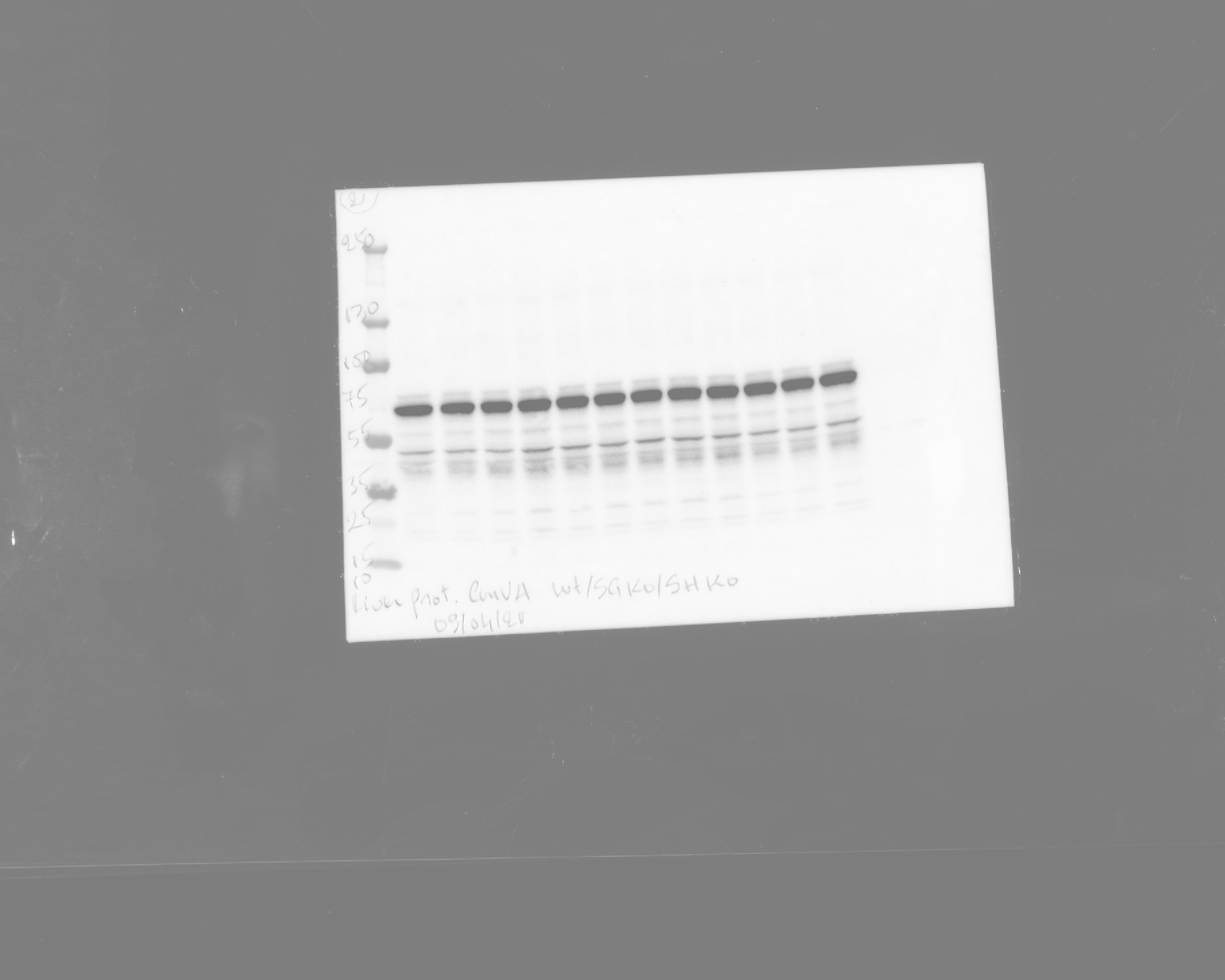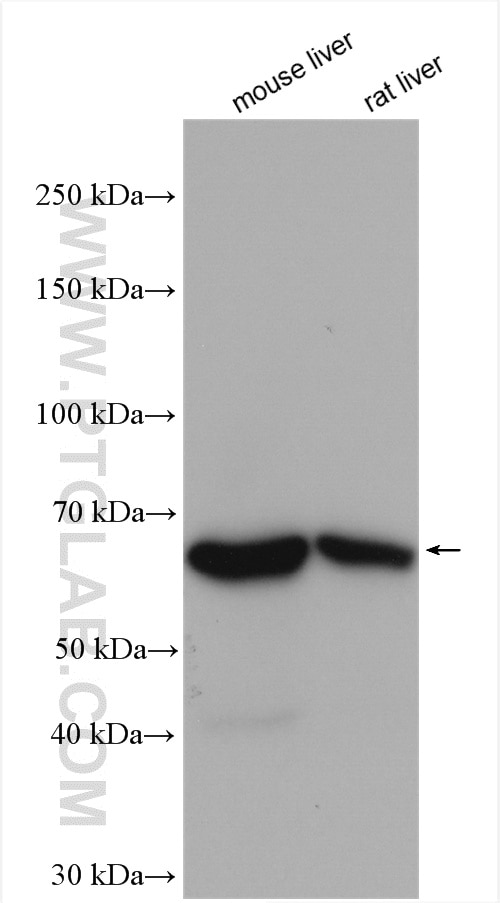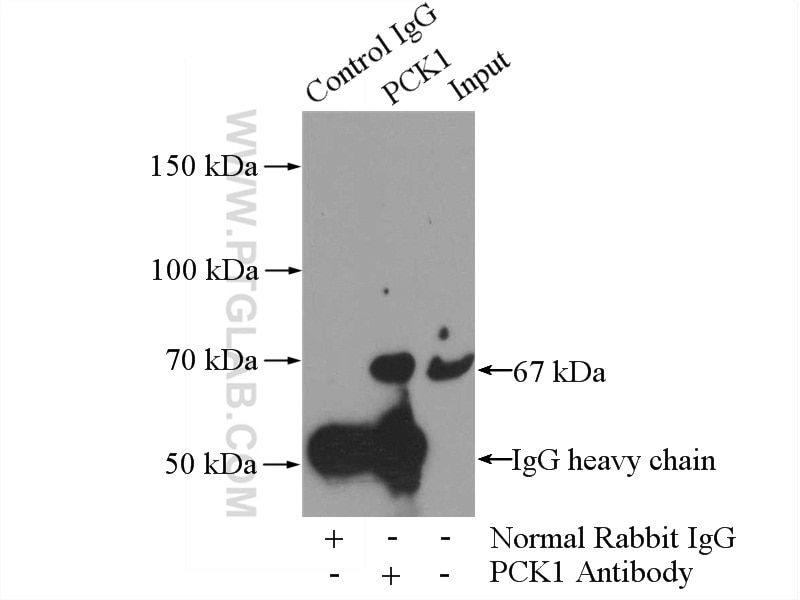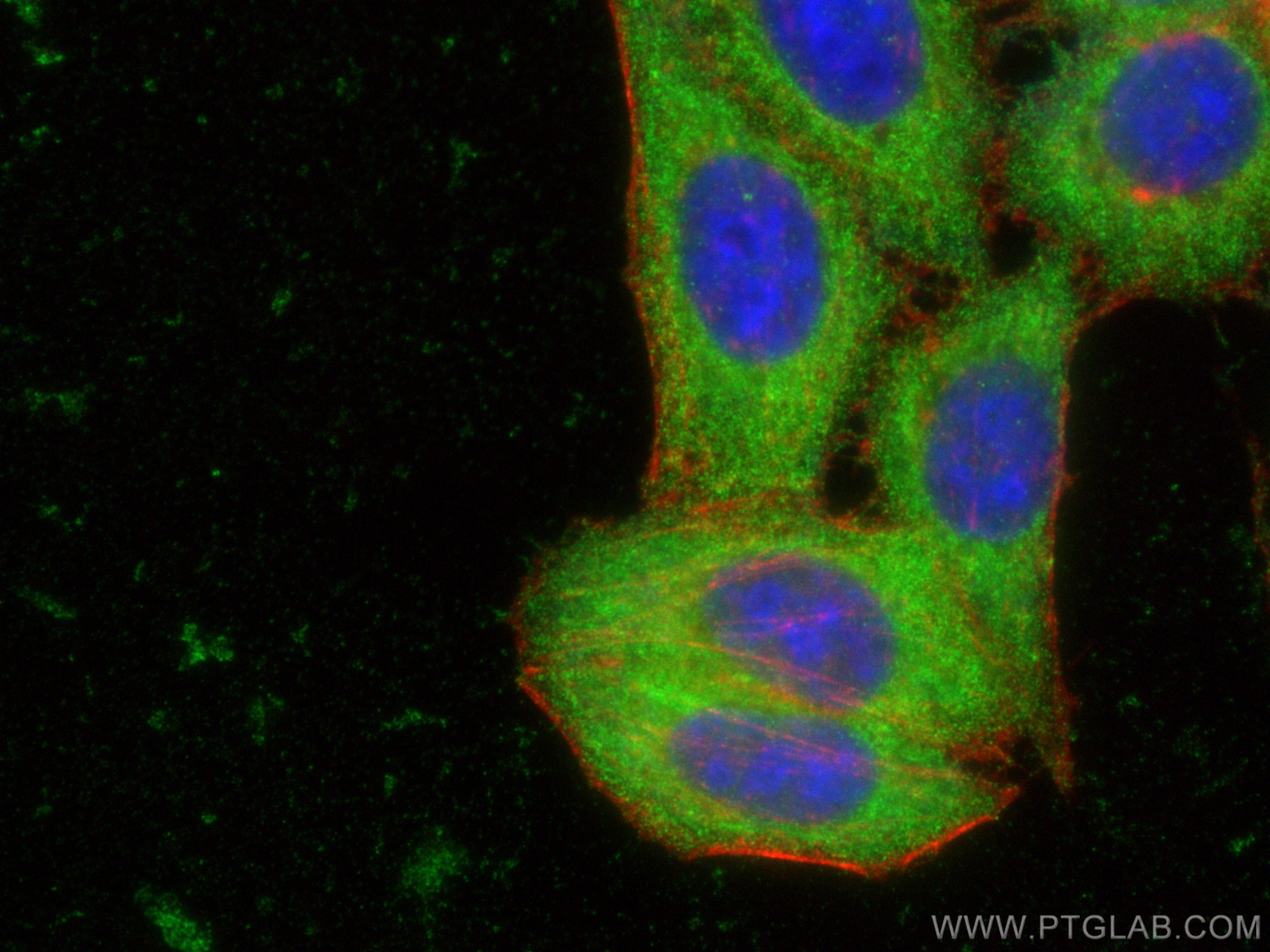Tested Applications
| Positive WB detected in | mouse liver tissue, rat liver tissue |
| Positive IP detected in | HepG2 cells |
| Positive IF/ICC detected in | HepG2 cells |
Recommended dilution
| Application | Dilution |
|---|---|
| Western Blot (WB) | WB : 1:5000-1:50000 |
| Immunoprecipitation (IP) | IP : 0.5-4.0 ug for 1.0-3.0 mg of total protein lysate |
| Immunofluorescence (IF)/ICC | IF/ICC : 1:50-1:500 |
| It is recommended that this reagent should be titrated in each testing system to obtain optimal results. | |
| Sample-dependent, Check data in validation data gallery. | |
Published Applications
| KD/KO | See 6 publications below |
| WB | See 80 publications below |
| IHC | See 9 publications below |
| IF | See 15 publications below |
| IP | See 4 publications below |
| CoIP | See 1 publications below |
Product Information
16754-1-AP targets PCK1/2 in WB, IHC, IF/ICC, IP, CoIP, ELISA applications and shows reactivity with human, mouse, rat samples.
| Tested Reactivity | human, mouse, rat |
| Cited Reactivity | human, mouse, rat, pig, bovine, goat |
| Host / Isotype | Rabbit / IgG |
| Class | Polyclonal |
| Type | Antibody |
| Immunogen |
CatNo: Ag10261 Product name: Recombinant human PCK1 protein Source: e coli.-derived, PGEX-4T Tag: GST Domain: 274-622 aa of BC023978 Sequence: EGEKKYLAAAFPSACGKTNLAMMNPSLPGWKVECVGDDIAWMKFDAQGHLRAINPENGFFGVAPGTSVKTNPNAIKTIQKNTIFTNVAETSDGGVYWEGIDEPLASGVTITSWKNKEWSSEDGEPCAHPNSRFCTPASQCPIIDAAWESPEGVPIEGIIFGGRRPAGVPLVYEALSWQHGVFVGAAMRSEATAAAEHKGKIIMHDPFAMRPFFGYNFGKYLAHWLSMAQHPAAKLPKIFHVNWFRKDKEGKFLWPGFGENSRVLEWMFNRIDGKASTKLTPIGYIPKEDALNLKGLGHINMMELFSISKEFWEKEVEDIEKYLEDQVNADLPCEIEREILALKQRISQM Predict reactive species |
| Full Name | phosphoenolpyruvate carboxykinase 1 (soluble) |
| Calculated Molecular Weight | 622 aa, 69 kDa |
| Observed Molecular Weight | 66-69 kDa |
| GenBank Accession Number | BC023978 |
| Gene Symbol | PCK1 |
| Gene ID (NCBI) | 5105 |
| RRID | AB_2160031 |
| Conjugate | Unconjugated |
| Form | Liquid |
| Purification Method | Antigen affinity purification |
| UNIPROT ID | P35558 |
| Storage Buffer | PBS with 0.02% sodium azide and 50% glycerol, pH 7.3. |
| Storage Conditions | Store at -20°C. Stable for one year after shipment. Aliquoting is unnecessary for -20oC storage. 20ul sizes contain 0.1% BSA. |
Background Information
PCK1(Phosphoenolpyruvate carboxykinase, cytosolic) is also named as PEPCK1 and belongs to the phosphoenolpyruvate carboxykinase [GTP] family. It catalyzes the formation of phosphoenolpyruvate from oxaloacetate, with the release of carbon dioxide and GDP. It is also a main control point for the regulation of gluconeogenesis. In eukaryotes there are two isozymes: a cytoplasmic one and a mitochondrial one. Defects in PCK1 are the cause of cytosolic phosphoenolpyruvate carboxykinase deficiency (C-PEPCKD). This antibody has weak cross-reactivity with PCK2 protein due to high sequence homology between PCK1 and PCK2.
Protocols
| Product Specific Protocols | |
|---|---|
| IF protocol for PCK1/2 antibody 16754-1-AP | Download protocol |
| IP protocol for PCK1/2 antibody 16754-1-AP | Download protocol |
| WB protocol for PCK1/2 antibody 16754-1-AP | Download protocol |
| Standard Protocols | |
|---|---|
| Click here to view our Standard Protocols |
Publications
| Species | Application | Title |
|---|---|---|
Nature The gluconeogenic enzyme PCK1 phosphorylates INSIG1/2 for lipogenesis.
| ||
Nat Commun Glycogen metabolism regulates macrophage-mediated acute inflammatory responses. | ||
Adv Healthc Mater Mesenchymal Stem Cell Exosomes Encapsulated Oral Microcapsules for Acute Colitis Treatment. | ||
Biomaterials Liver-targeted Nano-MitoPBN normalizes glucose metabolism by improving mitochondrial redox balance. | ||
Proc Natl Acad Sci U S A Circadian clock-dependent and -independent rhythmic proteomes implement distinct diurnal functions in mouse liver.
|
Reviews
The reviews below have been submitted by verified Proteintech customers who received an incentive for providing their feedback.
FH James (Verified Customer) (11-18-2022) | Detection of PCK1 in liver protein extracts
 |








